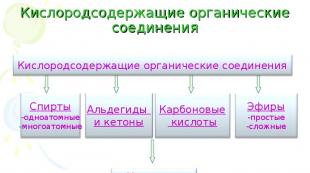What does pre-intermediate language level mean? Pre-intermediate level of English proficiency: what does it mean, what knowledge should be
What does English grammar look like by level?
In this post we will discuss in detail what grammar is covered at different levels of learning English - from beginner to advanced. Let's see examples of this grammar and do a little test.
Just in case, let me remind you that grammar is just one aspect of language learning. Necessary, useful, yes. But far from the only one.
How nice it would be if I learned grammar and, consider myself, mastered English))
English grammar by level
You will see that the same grammar is often repeated at different levels. Read more about why this happens. In short:
- not all grammatical structures are learned the first time (repetition is the mother of learning)))
- at low levels phenomena are considered separately from each other, and at higher levels they are compared with each other
- As the level of English improves, it turns out that each grammatical structure has nuances and subtleties, which insidious teachers are silent about for the time being, so as not to create confusion
English grammar by level - in different textbooks - looks approximately the same. Therefore, I will take as a basis one of the most popular textbooks - English File.
By the way, this English grammar by levels can be a kind of test. Look at any section and see if you understand sentences with grammar examples? But - more importantly - do you use such constructions in your speech? If not, it may not be your level yet. If yes, go to the next level and do the same.
English grammar by level - a short way to the desired section:
Beginner/Starter level grammar
The Beginner level covers the basics - the simplest constructions. At the same time, they are also the most important, because all the complex grammar of higher levels will be based on them.
At this level, a lot of attention is paid to forms - again, to achieve a certain automaticity in simple things, like I am, you are, he is. Grammatical constructions at the Beginner level are mainly treated separately from each other to avoid confusion of comparisons and nuances.
| What grammar pass at the level Beginner/Starter | Grammar example
|
| statements denial questions | I"m from Russia / You"re in class 2 / He"s 30 years old. I"m not from Moscow / You aren't late / He isn't French. Am I late? Are you from the UK? Is he French? How are you? Where is he from? |
| The only and plural number | a book - books a watch - watches an umbrella - umbrellas |
| this, these that, those | What's that? What are those? |
| Possessives pronouns | he - his / she - her / it - its |
| Possessive "s | Maria"s children, John"s birthday, my parents" car |
| Adjectives | It"s a fast car - This car is fast They"re expensive shoes - These shoes are expensive |
| statements denial questions | I have breakfast at home / She lives in a flat. I don"t go to work by bus / She doesn"t have a pet. Do you understand me? /Does she work here? Where do you live? / When does she start work? |
| Adverbs (adverbs of frequency) | always, usually often, sometimes, hardly ever, never |
| Questions with be and do | Where are you from? / Where do you live? |
| can, can"t | I can play the guitar / I can"t sing. / Can I park here? |
| like, love, hate with gerund | I like swimming / I love reading I hate doing housework |
| Present Continuous | I"m driving to the airport at the moment What are you doing? |
| There is / there are | There is a bar in this hotel but there aren't any restaurants. |
| Past Simple: was / were regular verbs (regular verbs) irregular verbs (Irregular Verbs) | I was born in 1988. Where were you at 7 o"clock last night? I arrived in Stockholm early in the morning. What time did you arrive? I bought some souvenirs. What did you buy? |
| Present Continuous for the future tense | I"m arriving in Venice on April 10. Where are you staying? |
Elementary level grammar
The Elementary level is very similar to the previous level. I will say more, often instead of Beginner, my students and I take on Elementary right away, we just go through it a little more carefully.
The Elementary grammar is almost identical to the grammar of the previous level.
| What grammar pass at the level Elementary | Grammar Examples
|
| to be: am / is / are statements denial questions | My name"s Anna / You"re early / My email address is... I"m not English / It isn"t far Where are you from? / What's your phone number? How old are you? |
| Possessives pronouns | I - my / you - your / we - our / they - their he - his / she - her / it - its |
| The only and plural number | a book - books / a watch - watches an umbrella - umbrellas a man - men, a woman - women, a person - people |
| this, these that, those | What's this? What are these? How much is this bag? What's that? What are those? |
| Adjectives | It"s an empty box- This box is empty. They"re cheap / quite cheap / really cheap |
| Imperative imperative Let's | Open the door / Sit down / Turn off your mobile. Let's take a break / Let's go to the cinema. |
| statements denial questions | I wear glasses / They drink tea / It rains a lot I don"t have children / They don"t live here / It doesn't work Do you live in a flat? / Does she speak German? What time does it open? |
| Possessive "s Whose | Justin Bieber's sister, George Clooney's father Whose bag is it? |
| Prepositions of time and places | at 7am, in the morning, at the weekend, in March on Monday, at school, in the park |
| Adverbs | always, usually, often, sometimes, hardly ever, never every day, twice a week, three times a year |
| can/can't | Where can I park? / I can't hear you. |
| Present Continuous | What's happening? What are you looking at? |
| Object pronouns | I - me / we - us / they - them he - him / she - her / it - it |
| like/love/enjoy don't mind hate with gerund | I like / love / enjoy reading in bed. I don't mind cooking. I hate getting up early. |
| | Are you a fan of any band? When do you usually listen to music? |
| Past Simple was / were regular verbs (regular verbs) irregular verbs (wrong verbs) | Where were you? I was at a party last weekend / They were angry They chatted and listened to music. What did they do? I wore a black dress. What did you wear? |
| there is / there are some/any | There's a dining room. There are three bedrooms. Are there any neighbors? There are some paintings. |
| there was / there were | Was there a mini-bar in your room? There were 3 other guests. |
| Countable and uncountable nouns | an apple, a banana some sugar, some rice We need some sugar / There isn't any milk. |
| How much / how many a lot of, some, none | How much free time do you have? How many friends do you have on Facebook? |
| Comparative adjectives | A proton is heavier than an electron. Mosquitoes are more dangerous than sharks. good - better / bad - worse / far - further |
| Excellent adjectives | It's the longest river in the world. It's the most popular art gallery in the world. |
| Going to for plans | I'm going to travel round Europe. |
| Going to for forecasts | You're going to like it. |
| Adverbs | speak fast, know him well, drive carefully |
| Verbs with infinitive | want to talk to you, would like to learn to cook need to stop |
| Articles | I"m a student / It"s the oldest university in Europe. |
| Present Perfect | I"ve seen Harry Potter but I haven"t read the book. Have you ever eaten sushi? |
Pre-intermediate level grammar
At the Pre-intermediate level they are already beginning to compare different designs with each other and find out the nuances. Why is it better to say somewhere I study economics, and somewhere - I"m studying economics.
| What grammar pass at the level Pre-intermediate | Grammar example
|
| Word order in questions | Do you speak English? What languages do you speak? Did you go out last night? Where did you go? |
| Present Simple | She has a lot of hobbies. We don't get on very well. |
| Present Continuous | John is wearing a suit today! He usually wears jeans. |
| Past Simple | Where did you go on holiday last year? We went to Italy. |
| | When you called me, I was talking to my boss. |
| unions | although, but, so, because |
| Going to plans forecasts | What are you going to do when you leave school? We are going to be late for work! |
| Present Continuous for future agreements | I"m meeting Joe at 3 o"clock. When are you coming back? |
| Relative clauses | This is the restaurant where they make great pizza. |
| Present Perfect yet, just, already | I"ve just started a new job. I"ve already seen this film. / Have you finished yet? |
| Present Perfect and Past Simple | Have you ever been to Mexico? When did you go there? |
| something/anything nothing (where / one) | Did anyone phone? No, no one. Is there anywhere to park? |
| Comparative adjectives and adverbs | Driving is more dangerous than flying. I"m as tall as my brother. Can you speak more slowly, please? |
| Excellent adjectives | It's the best film I've seen this year. It's the worst meal I've ever eaten. |
| Quantifiers | how much / how many / too / enough |
| will / won't / shall forecasts, spontaneous decisions promises, etc. | Shall I open the window? You'll like it. I think I"ll go home now. I"ll always love you. |
| Use infinitive | Try not to talk about politics. I came to this school to learn English. Be careful not to drive too fast. |
| Using -ing form (gerund) | Waking up early in the morning makes me happy. He left without saying goodbye. |
| Modal verbs have to, don't have to must, mustn't | I have to get up at seven every day. I don't have to wear a uniform. You mustn't leave your bags here. |
| should | What do you think I should do? You should see a doctor. |
| First Conditional (first conditional) | If I miss the last train, I"ll get a taxi. |
| Possessives pronouns | mine, yours, theirs, ours his, hers, its |
| Second Conditional (second conditional) | I"d do more exercise if I had more time. What would you do if you won a million dollars? |
| Present Perfect for, since | How long have you lived here? I "ve known her for 15 years / since we were children. |
| Passive present and past | Nowadays a lot of toys are made in China. This morning I was woken up by the neighbor's dog. |
| used to | She used to wear glasses. |
| might | She might come with us, she"s not sure yet. |
| | into, out of, over, along, across, through |
| So do/am/did I Neither do / am / did I | I "m married. - So am I. I don't know him. - Neither do I. |
| Past Perfect | The show had already finished by the time I arrived. |
| Reported speech (indirect speech) | He said that he was hungry. She told me that her car had broken down. |
| Questions without auxiliary verbs | How many people came to the meeting? Who invented the radio? |
Intermediate grammar
At the Intermediate level, they also compare already familiar phenomena with each other and, of course, study new ones.
| What grammar pass at the level Intermediate | Grammar example
|
| action / non-action | I never cook vs What are you cooking? I have a dog vs I"m having lunch I think it "s a good idea vs I"m thinking about you |
| Future: will/won't going to Present Continuous | I"ll help you. Do you think it"ll rain? You"ll love this film! I"m going to buy a new car. Barcelona are going to win. They are getting married in October. |
| Present Perfect vs Past Simple | I"ve been to London before. He hasn"t found a new job yet. When did you go there? How did the interview go? |
| Present Perfect Pres. Perf. Continuous for, since | They"ve known each other for 5 years / since 2010. I"ve been studying English for 10 years. How long have you been waiting? |
| Degrees of comparison adjectives (comparative adj., superlative adj.) | My brother is a bit / much taller than me. This chair isn't as comfortable as that one. It's the most expensive city in the world. He"s the smartest person I"ve ever met. |
| Articles | I saw a nice house with a fancy porch. The porch was decorated with plants. |
| can, could, be able to | I can sing. I could swim when I was 4. I"ve never been able to dance. I"d like to be able to draw. |
| must / mustn't have to / don't have to should/shouldn't | You must wear a seatbelt / You mustn"t exceed the speed limit. Do I have to pay now? / You don't have to come. You should stop smoking / You shouldn't drink so much coffee. |
| Past Simple Past Continuous Past Perfect | When I got home, my family had dinnner. When I got home, my family were having dinner. When I got home, my family had dinner. |
| usually vs used to | I usually get up at 6am. I used to get up at 11 when I was unemployed. |
| The Passive (all times) | A lot of films are shot on location. The film is being shot. The film has been shot. The film will be shot on location. |
| might, must, can("t) for guesswork | She might like the idea. This must be difficult for you! You can't be serious! |
| First Conditional Future time clauses | The boss won't be happy if you are late for work again. As soon as you get your exam results, call me. |
| Second Conditional | What would you do if you met a celebrity? If I were you, I"d buy a new car. |
| Reported speech (indirect speech) | I asked him if he wanted to join us. She told me she had lost her wallet. |
| Gerund and infinitive (gerund and infinitive) | I"m not good at remembering names. I don"t mind getting up early. Shopping is my favorite pastime. I don't know what to do. My house is easy to find. Try not to make a noise. |
| Third Conditional | If I had known about the party, I would have gone. |
| Quantifiers | I eat a lot of chocolate. She earns a lot. We have plenty of time. There aren't enough parks. There's too much traffic. |
| Relative clauses | That's the house where I was born. |
| Question tags | They live in New York, don't they? You aren't angry, are you? |
Upper-intermediate grammar
By the advanced Upper-intermediate level, enlightenment usually sets in; the basics have already been covered. All that remains is to repeat them a little and move on to the interesting and subtleties of grammar.
| What grammar pass at the level Upper-intermediate | Grammar Examples
|
| Question formation (word order in questions) | Are you talking about me? What are you talking about? What time does it open? |
| Auxiliary verbs (auxiliary gverbs) | I like dogs, but my wife doesn't. - I loved the film! - So did I. - I've finished. - Have you? |
| the...the... comparatives | The sooner, the better. The longer you wait, the worse it gets. |
| Present Perfect vs Present Perfect Continuous | She has been writing novels since she was a student. She"s written 30 novels. |
| Adjectives as nouns Adjective order (adjectives as nouns, adjective order) | The Chinese invented paper. The poor are getting poorer. They need to create more jobs for the unemployed. I bought a beautiful Italian leather bag. |
| Narrative tenses: Past Simple, Past Continuous, Past Perfect Past Perfect Continuous | We had been flying for about two hours when suddenly the captain told us to fasten our seat belts because we were flying into a thunderstorm. When this happened, passengers most hadn't finished their meals yet. |
| so...that such...that | There was so much traffic that we nearly missed the flight. It was such a great show that I want to see it again. |
| Position of adverbs and adverbial phrases (adverbs) | He walks slowly. I've almost finished. Ideally, we should leave at 8. |
| Future Perfect Future Continuous | They will have finished painting the house by Monday. Don't phone between 6 and 7, we'll be having dinner then. |
| Zero and First Conditionals Future time clauses | If you haven"t been to Paris, you haven"t lived. If we are lucky, we"ll have sold the house by Christmas. I"ll call you as soon as I"ve talked to the boss. |
| Unreal conditions | If you exercised more, you"d be much healthier. He would have died, if he hadn't been wearing a helmet. |
| Constructions with wish | I wish I was 20 years younger! I wish I hadn't bought this car! / If only I hadn't bought ... I wish you would stop calling me at night. |
| Gerunds and infinitives (gerund and infinitive) | Remember to lock the door VS I remember locking the door. I stopped to smoke VS I stopped smoking. |
| Used to, be used to, get used to | I used to live in the countryside. I was used to the peace and quiet. I can"t get used to the noise of the city. |
| must have been/done might have been/done can"t have been/done | It must have been difficult for you. They might have left. I can't have lost it. |
| Verbs of the senses (verbs of perception) | It smells good. It feels comfortable. You look tired. Sounds interesting. |
| (passive voice) + it is said that... + have something done | My car has been stolen. You can be fined for making noise. The church was being renovated when I last saw it. The criminals are believed to have fled the country. I need to have my car fixed. |
| Reporting verbs | He persuaded me to quit my job. She apologized for not being on time. |
| Clauses of contrast and purpose (subordinate clauses oppositions and goals) | I went to work even though I wasn't feeling well. Although I was tired, I didn't want to go to bed. In spite of / Despite the fact that she"s 85, she"s very active. I went to the bank in order to speak to my bank manager. I wrote it down so as not to forget. |
| whatever, whenever whoever | Have a seat wherever you like. Whatever happens, stay calm. |
| Uncountable and plural nouns (uncountable nouns and noun in multitudes. number) | I need some advice. I"ll give you two pieces of advice. It"s made of glass. Can I have a glass of water? The hotel staff is very friendly / The hotel staff are very friendly. The police are canvassing the area. |
| Quantifiers | All fruit contains sugar VS All the animals in this zoo look sad. She wanted to study either physics or mathematics. |
| Articles | My father is in hospital. They"re building a new hospital. |
Advanced Grammar
| What grammar pass at the level Advanced | Grammar Examples
|
| Have - auxiliary or main verb (have like auxiliary and main verb) | Do you have any money on you? Have you got any cousins? I haven't a clue. Do I have to pay now? I need to have my eyes tested. |
| Discourse markers and linkers (conjunctions and connectives) | Despite / In spite of her age, she"s still very active. Despite / In spite of the fact that she"s 85, she"s very active. I keep checking my email in case there"s an urgent message. |
| Pronouns (pronouns) | They say it's never too late to change your life. We decorated the house ourselves. |
| Past events: habitual or specific Habitual and single events in past | I"d wanted to buy a new car for a long time. I"d been saving up for 2 years and when I finally bought it, I was over the moon. I used to have a car but I don"t anymore. |
| Get Values and use | Let"s get a taxi. / It"s getting dark. / He might get sacked. I need to get my passport renewed. Get Jane to call me. |
| Discourse markers: adverbial expressions | As a matter of fact, I don't like football. On the whole, I believe women are better drivers than men. As far as the price is concerned... |
| Speculation and deduction Guess and assumptions | I must have forgotten to lock the door. You might have been injured. It can't have been easy. It ought to have arrived by now. |
| Inversion (change order words in a sentence) | Never have I heard such a ridiculous argument. Not only is he attractive, (but) he"s also smart. Little did I know. |
| Distancing | It appears that the situation is going to get worse. There seems to be a mistake in the bill. There is thought to be some tension between them. |
| Unreal uses of past tenses | If only you hadn't forgotten the map! I"d rather you left the dog outside. It's time we stopped arguing. |
| Verb + object + infinitive/gerund | We expect the bus to arrive at 7. I want Real Madrid to win. |
| Conditional sentences + mixed conditions | They won't get a table unless they've booked it in advance. Provided the bank lends us the money, we"re going to buy it. If I"d listened to your advice, I wouldn"t be in trouble now. |
| Permission, obligation necessity | You don"t need to take a jacket VS You needn"t lock the car. You aren't supposed to park here. |
| Verbs of the senses | You seem to have made a mistake. I saw him cross the street VS I saw him crossing the street. |
| Complex gerunds and infinitives | She thanked him for having helped her. By the time I"m 30, I hope to have started a family. |
| Future plans and arrangements | My brother is due to arrive at 8. I am about to get promoted. The Prime Minister is to visit India next week. |
| Ellipsis | - You must see his latest film. - I already have. He did it even though I told him not to. - It wasn't my fault. - Well, if you say so... |
| Nouns -s" of compound nouns | I borrowed my mother's car / She's at the hairdresser's. She "s got ten years" experience. Can you remember the name of the film? I opened the car door, got in and fastened the seat belt. |
| Adding emphasis (gain) Cleft sentences | What I need is some rest. What happened was we left our umbrellas in the taxi. The reason why I bought it was because it was cheap. |
| Relative clauses | My brother who lives in Australia is a programmer. VS My brother, who lives in Australia, is a programmer. I haven't seen him for 2 weeks, which is a bit worrying. |
That's all English grammar by levels.
Does English grammar really end after the Advanced level? No, of course)) If you look at the levels, there is also the Proficiency level, but the line of conversation courses really ends at the Advanced level.
Perhaps this is because:
- even an ambitious user of English rarely needs a level higher than Advanced (not to mention the average learner who stays in the Intermediate area)
- at high levels, people already know how to find the necessary authentic materials on their own and independently organize their training
- at high levels, many people think about a more practical and targeted use of English - for example, preparation for international exams (IELTS, TOEFL and others) or specialized courses in the profession
And there are still a lot of subtleties left even after the Advanced level!
How do you like English grammar by levels?
Did you manage to determine your level with its help? Share in the comments!
Let's say you have already crossed the Elementary level and are one step closer to your goal - to communicate fluently in English. What level are you at? Right! This is level A2 Pre-Intermediate or preparatory intermediate level. It ranks a respectable third in the CEFR table and takes you closer to perfection. Well, let's get started, ladies and gentlemen!
| LEVEL | Description | CEFR level |
|---|---|---|
| Beginner | You don't speak English | ;) |
| Elementary | You can say and understand some words and phrases in English | A1 |
| Pre-Intermediate | You can communicate in “plain” English and understand the other person in a familiar situation, but have difficulty | A2 |
| Intermediate | You can speak quite well and understand speech by ear. Express yourself using simple sentences, but have difficulty with more complex grammatical structures and vocabulary | B1 |
| Upper-Intermediate | You speak and understand English well by ear, but you can still make mistakes | B2 |
| Advanced | You speak English fluently and have full listening comprehension | C1 |
| Proficiency | You speak English at the level of a native speaker | C2 |
PreIntermediate language level - what does it mean?
Pre-Intermediate level (A2) is the level at which you are no longer so afraid of communicating with a foreigner who addresses you in English. Ask him to repeat the question and you will not only understand, but also be able to explain how to find the nearest hotel. It is at this level that you gradually learn to communicate in English and practice your speech, and the time of silence comes to an end.
At this level, you repeat and consolidate the knowledge that you received at “Elementary”. You could say you start all over again, with “Present Simple”, but at the same time you delve into the nuances of the language that you were not familiar with before.
At this level, you can already try to pass some kind of language test, although there will be no practical benefit from this. This level approximately corresponds to the result of 3-4 when passing the IELTS exam, 39-56 points when passing the TOEFL iBT, you can try to pass the Cambridge PET exam (Preliminary English Test) and get a good score. By the way, if you want to work abroad, then non-specialized employers are looking for people with exactly this level of language.
- understand the general meaning of the interlocutor’s statements, you can maintain a simple dialogue and ask questions, but speak in short, fragmentary sentences;
- passed our level determination test and he told you so :) ;
- you know basic grammar well, but it is difficult for you to use it in spontaneous conversation, you get confused in constructions or construct phrases using only simple tenses;
- studied English at school or university and have good basic knowledge;
- Recently completed a course of studying English at the “Elementary” level.
The Pre-Intermediate level program includes the study of the following topics.
| Grammar topics | Lexical topics |
| Group tenses Present (Simple, Continuous, Perfect) Times of the group Past (Simple, Continuous, Perfect) Constructions Used to do and be used to do something Future Simple tense + be going to construction Word order in questions Types of questions Comparative and superlative degrees of adjectives Too, enough, a little, a few Gerund and infinitive Modal verbs (have to, must, can, may, might, should) Prepositions of time and place Conditional sentences (0, 1, 2 type) Passive voice Indirect (Indirect) speech Phrasal verbs |
Family and friends Technologies Holidays Events Communication Vacation and day off Trips Ecological problems Lifestyle Relationship Circle of life Cinema and films Media Best work Our future Health Love and trust Music Modern society Shopping and shopping Fame and success Perfect world |
How long to study for Pre-Intermediate
The duration of studying English at the Pre-Intermediate level may vary depending on the starting knowledge and individual characteristics of the student. Our Pre-Intermediate course lasts on average 4-8 months.

Set a goal. Your desire to learn English is the driver of your learning. If you don't have the motivation to study, it will drag on for a long time. Therefore, the first thing you need to do when learning English is to set yourself a goal for which you need the language. You travel a lot and want to make new friends and learn more about the culture of countries. For such purposes, you need a “Pre-Intermediate” level and higher.
Exercise every day. If you want to compress the time it takes to learn English as much as possible, then you need to study every day. At the same time, to immerse yourself in the language environment, study for at least 2 hours a day.
Use English in your life. Don't wait until you master the language perfectly. Start using it in your life right now! Try to replace Russian with English as much as possible. This way you can use it and improve it at the same time. Right now, think about where you can use it. There are so many ways!
Conclusion
After reading the article, you may think that Pre-Intermediate and Elementary are similar in grammar or conversation topics. We can assure you, this level is more difficult. At Pre-Intermediate, old grammar acquires new nuances, and a similar topic like “Food” or “Daily Routines” becomes richer in new words and stable constructions. Go ahead and don't stop there!
Big and friendly EnglishDom family
Intermediate defines the average depth of knowledge. It includes a fairly wide range of skills.
This level is preceded by another, which is called Pre-Intermediate and assumes intermediate language proficiency. They switch to Intermediate when they want to learn how to talk not only about ordinary topics, but also be able to discuss professional situations. The Intermediate level provides an understanding of the normal rate of spoken speech by native speakers. The ability to read both fiction and business literature also contributes to this. There are many other skills that characterize the English Intermediate level.
Perhaps the most important factor is that language proficiency at the Intermediate level is required for admission to language universities. Many employers indicate that they need employees who speak English at an Intermediate level. So mastering this level is very important.
Language levels
Many English textbooks are signed as for intermediate students. This means that they are intended for mastering intermediate levels of English. Students graduating from non-linguistic universities speak this level of language. But where did this name come from?
The General English Language Proficiency Scale was created by the ALTE Association. They identified six possible levels of language acquisition:
- Beginner - initial. This is the level of those who are just starting to learn English. A person at this level learns the alphabet, phonetics, grammar, vocabulary, starting with the simplest sentences and questions.
- Pre-Intermediate - below average. A person with this level of knowledge already knows how to construct sentences and can briefly talk about a common topic.
- Intermediate - average. A level that allows you to travel and learn new things. The vocabulary increases significantly, a person can already carry on a conversation, express his own thoughts, talk with a native speaker, and travel freely around the world.
- Upper-Intermediate - above average. This level is designed for the practical application of communication skills. It is most in demand in the fields of education and business. With language knowledge at this level, you can even enter a foreign university.
- Advanced 1 - advanced. It is necessary for specialists. This level is also studied by people who want to speak, read and write fluently in English. With this level you can get a prestigious job in another country.
- Advanced 2 - super advanced. This is the level of native speakers. It is simply impossible to learn a language better than they themselves.
All exams in Cambridge are tied to this scale. Publishers rely on it when producing dictionaries for English language learners. Each reference book, collection of exercises, book for learning a language must indicate the level of knowledge of which allows you to use this publication.

Proficiency at the Intermediate level allows a person to conduct conversations on everyday topics. He can read and write well in English, speaks well, and knows the grammar of the language well.
Knowledge of English at the Intermediate level allows schoolchildren to enter language universities and even try themselves in Western educational institutions.
Requirements for students at the Intermediate level
What can a student with an average level of language knowledge do? He can ask the opinion of his interlocutor, he can clearly talk about what he feels, and express his own ideas. Such students know how to show that they did not understand their interlocutor and may ask them to repeat what was said.
What does Intermediate level mean? People around you, even foreigners, can understand the pronunciation of a person who speaks this level. A person is able to use correct intonation and place emphasis in words. The vocabulary is quite wide.
Intermediate level also means that a person understands the tasks of the exercises. He can tell by pronunciation whether his interlocutor is native to English.
The Intermediate level is the ability to write letters, both personal and official, and correctly fill out questionnaires and declarations. A person who speaks at the Intermediate level can express his thoughts grammatically and correctly.
How do you know if your language proficiency is intermediate?
Many people study the language, but not everyone knows such a thing as the Intermediate level, what it means and what their own knowledge is. People can evaluate their knowledge by talking to a teacher. But there is also the possibility of independently determining your level.
Conversational skills
How well do you know English? The Intermediate level, which means “average,” makes the following requirements for speaking skills:

- The ability to correctly form familiar words into sentences, use the right intonations, express emotions and determine the emotions of your interlocutor.
- The ability to express one’s thoughts clearly and correctly without having problems with pronunciation.
- If any point in the conversation turns out to be incomprehensible, a person at the Intermediate level can report his problem to the interlocutor and ask him to repeat the last words.
- Easily and quickly select synonyms for words, understand verbiage, and determine their meaning in context.
Reading Skills
The Intermediate level allows a person to understand the main essence of the text, even if individual words remain unknown. He can analyze the text he read and express his own opinion about what he read. The exception is highly specialized texts that are replete with terminology.

A person with an Intermediate level, having read the text, understands the style of its writing. He can understand the meaning of popular phraseological units, as well as stable phrases that are used in the text.
Writing skills
Knowledge of the language at the Intermediate level allows you to write personal and official letters, fill out business papers. A person can present short stories in writing and grammatically correct manner in the style required for storytelling.

These are the basic skills of a person who has an Intermediate level. What does this mean in general? The ability to write texts grammatically correctly, using a large vocabulary, both in written and spoken versions.
Intermediate level courses
Many educational institutions offer to improve language skills to an intermediate level. In this case, the person who has completed the course will be able to:
- Freely communicate on everyday topics.
- Correctly formulate your emotions, explain your attitude to events around you.
- Conduct constructive dialogues with your interlocutor, ask his opinion and even argue in language.
- Correctly place stress and intonation in words, be able to determine in which cases one or another intonation is used. This will allow him to emphasize his emotional state.
- Improve pronunciation.
- Learn to understand speech by ear.
- Understand your interlocutor not only by his words, but also by his intonations.
- Identify native speakers and those who simply speak it well.
- Provide grammatically correct information about yourself, in writing or orally, and support informal conversation.
- The Intermediate level also allows you to come up with fictional stories on your own.

Proficiency in the language at the Intermediate level will allow a person to confidently travel around developed countries without translators and without fear of getting into an awkward situation.
Conclusion
Knowledge of English at the Intermediate level allows a person to feel confident in many situations. He can read books, communicate with native speakers and even write business letters. With this knowledge you can get a good position. Intermediate - average level of language proficiency, which is enough to feel confident when traveling to
Pre-Intermediate is the level to which all those who have already left Beginner courses behind them go, but cannot yet say that they speak English at a solid intermediate level. And you need to know the peculiarities of this intermediate level, at least in order to control the process of your learning, to be able to choose the most suitable textbooks, manuals, and courses. In fact, the line between Pre-Intermediate and Intermediate is quite thin; some courses skip intermediate levels altogether, offering groups only for beginners, intermediates and advanced. However, if you need to pass any exam, this difference will be very noticeable indeed.
For example, in order to successfully pass the Unified State Exam in English, you must have an Intermediate or Upper-Intermediate level. This exam does not require anything too complex, only very basic grammar and vocabulary, but the knowledge must be reliable. The level of English Pre-Intermediate in this case will be clearly insufficient, because it is characterized by some instability. There is knowledge, but it is still too fragmentary. There is no freedom or confidence in answering grammar questions, or in reading or listening, although everything seems very familiar.
To understand the difficulty of dividing a language into levels, try to answer the question: how does knowledge accumulate from lower to higher levels? Getting acquainted with phonetics and pronunciation, we inevitably must master some set of words, at least the simplest grammatical structures, etc. In fact, when studying a language, we do not move up the steps, stepping from one to another, but plunge into a body of water, going deeper and lower, and seeing in front of you everything the same as it was at the beginning, but in a broader perspective.
Pre-Intermediate in comparison with Beginner and Intermediate levels
At the previous level, Beginner or Elementary, we are introduced to a wide variety of topics, such as greetings, talking about yourself, characteristics of people; everyday vocabulary is acquired (clothing, furniture, food, etc.) The student learns the rules of reading; at the end of the initial course, he can actually read, but only fairly simple texts; reading the rest can hardly be called such; it is more likely to be an analysis of texts with a dictionary, rather than reading. A newbie can fill out a form or write a birthday greeting to a friend via email, but writing a detailed letter recounting all the local news will require intense effort. His reading style is reminiscent of the reading of a child who has just learned how syllables form words, and still spends quite a lot of effort on the actual reading process, and not on understanding. And even if he reads fluently, he comes across many passages that seem to have been read, but are completely incomprehensible. Beginner's knowledge is enough to communicate using gestures and words at the airport, in a store, on the street. Any interlocutor will understand you, but he will also understand that your knowledge is very shallow and will try to speak more slowly and simply.

At the Pre-Intermediate level, the same knowledge is deepened, emphasis is placed on grammar and further expansion of vocabulary. The main thing at the end of this level is to master the structure of the language, since at the next level an active movement “in breadth” begins; it is not for nothing that Intermediate in the West is sometimes called functional, because it represents a reliable knowledge base that provides a lot of opportunities, including for work or studying at a university. You need to be prepared for this, so at the Pre-Intermediate level, basic ideas about grammar are gained, which are finally consolidated at the Intermediate level. All other skills, such as reading and speaking, develop, but it is at this level that different students clearly reveal their inclinations and abilities. Someone understands that he has excellent hearing and a certain artistry - he perfectly recognizes the nuances of pronunciation and reproduces them, someone, on the contrary, has a strong logical mind and cracks grammatical problems like nuts, but cannot connect two words in any case. , it is felt that the student has not yet reached the “fireproof sum”. If he stops studying at this point, he will inevitably forget most of what he learned, and subsequently he will have to start all over again.
If at the elementary level the student understands only clear and slow speech on familiar topics, at the intermediate level he can listen to and understand any popular television programs, then the Pre-Intermediate level, which is intermediate between them, is very difficult to characterize unambiguously. Yes, you can already understand fluent speech, but selectively. You can talk about your musical tastes, but find it difficult to justify your preferences. You can read not only fairy tales, but also adult literary works. Although it would be difficult to call it a pleasure, because you will have to do some work translating incomprehensible words and parsing complex structures, since even the most fascinating detective stories of Agatha Christie, written in a fairly simple and clear language, cause difficulties for students with the Pre-Intermediate level.

Vocabulary at different levels is approximately:
- Beginner - 1000 words;
- Pre-Intermediate - 1200 words;
- Intermediate - 1500 words.
Of course, these figures are very arbitrary. Some courses offer such a Pre-Intermediate, at the end of which you will know about 1800 words. In any case, in order to communicate freely or read as native speakers do, you need to know about 8 thousand words. If you know more, then we are talking about special knowledge or erudition. 1500 words is enough for everyday communication or confident, but not yet fluent reading.
Pre-Intermediate - the level at which you can:
- Pronounce familiar words clearly and understandably.
- Build sentences grammatically correctly in oral and
- Talk about yourself, describe a situation or person, express an opinion.
- Ask your interlocutor to explain an unclear place.
- Feel confident in everyday life and on tourist trips.
- Capture the main meaning of any text, including scientific articles.
- Read literary works written in simple language with a dictionary.
- Distinguish all sounds, it is good to hear familiar words in fluent speech. It is good to understand clear, not too fast speech.
- Write a fairly meaningful letter to a friend using simple grammatical structures.
- Fill out the form, questionnaire, questionnaire.
Pre-Intermediate - a level at which you cannot:
- Freely read literary works “that you have long dreamed of.”
- Understand the nuances of a particular author’s style.
- Talk with friends about complex philosophical topics.
- Understand people who have some peculiarities of pronunciation, for example, with fluent, distorted speech.
- Maintain a simple conversation on a topic that you “haven’t studied”, for example, discuss with a car enthusiast neighbor his new car if you learned your vocabulary from travel texts.
- Confidently give a scientific report, make a presentation and answer questions from the audience.
Of course, as mentioned above, all these skills depend on the course, purpose and focus of training. For example, people with a general Pre-Intermediate level can successfully communicate on work topics, for example, in the IT field. Of course, this is possible provided that specific vocabulary is studied. And although everything else, like watching popular movies, will cause difficulties, in certain situations a person with a Pre-Intermediate level of English will feel confident.
Classification of English proficiency levels
Depending on the degree of proficiency in certain language skills, several levels of language proficiency can be distinguished.
There are many classifications, but the disadvantage of any of them is the inability to draw a clear line between levels.
At the European Union level, it is adopted from A to C, where each group is divided into 2 more subgroups. However, in our country, another classification is more common, including from 3 to 8 stages in different sources.
On average, there are six of them:
- Basic. At this level it is too early to talk about any language proficiency; we are only talking about the beginning of learning, getting to know the basics.
- Elementary. At this stage, a person is already able to understand simple sentences and signs in public places. He should also be able to construct basic speech structures, for example, introduce himself, ask for directions, place an order in a cafe, etc.
- Pre-Intemediate. This stage implies knowledge of the commonly used basics of English grammar, and the ability to explain everyday topics when communicating with foreigners with good pronunciation. The average non-language school gives its students something like this.
- . at this level means understanding the meaning when reading books and watching films, competent oral and written speech in the case of most non-highly specialized topics.
- Upper-Intermediate. At this stage, a person is able to communicate fluently, albeit not without some minor errors, orally and in writing, and masters the entire system of English grammar, although he may not understand the subtleties and nuances that are generally understandable only to native speakers. This level is sufficient for living, studying and working abroad.
- Advanced. This stage means at the native level - an extensive vocabulary, knowledge of slang and everyday expressions, the ability to easily communicate on any topic using idiomatic and other established expressions. This level can only be achieved through continued use of language in communication.
Language level pre intermediate
Pre-Intermediate level skills
This level implies knowledge slightly below average, i.e. it corresponds to language proficiency at an everyday level.
Speaking and communication
- Speaking: the ability to speak on everyday topics with correct intonation, correct pronunciation and not too slow a speed.
- Speech understanding: the ability to understand calm and unhurried speech in situations of social and everyday interaction. We are talking not only about personal communication, but also, for example, about announcements on the streets, train stations, airports, etc., talking on the phone, using TV and radio, etc.
Reading and writing
- Reading Skills: the ability to correctly read and understand the essence of texts of a general orientation, both artistic and journalistic content.
- Writing skills: ability to describe a situation, person or event, compose the main types of electronic messages - request, apology, request.
Conditions for further study of English from the Pre-Intermediate level
Development of speech skills in the Pre-Intermediate course
 Increasing and mastery of basic grammatical structures allows us to move from the simplest sentences to coherent and meaningful communication on the following basic topics:
Increasing and mastery of basic grammatical structures allows us to move from the simplest sentences to coherent and meaningful communication on the following basic topics:
- Family.
- Purchases.
- Transport.
- A story about yourself.









